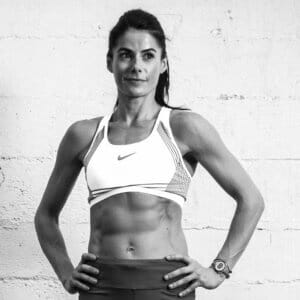Finding the right personal trainer is a crucial step toward achieving your fitness goals. In a city like San Francisco, with an abundance of personal trainers, it’s essential to approach the selection process thoughtfully. This guide will provide you with valuable insights and tips to help you find the perfect personal trainer in San Francisco who can support and guide you on your fitness journey.
As a San Francisco personal trainer and nutrition coach myself, AP Wellness Training & Consulting knows the San Francisco fitness industry well. Having served hundreds of clients, I have been positioned as an authority in the fitness space.
I’ll guide you through everything you need to know about finding a personal trainer in San Francisco that’s right for you.
How to Find a Good Personal Trainer: The First Step

Understanding Your Needs:
To begin your search for the ideal personal trainer, it’s essential to understand your specific fitness needs.
Consider your goals:
- Weight loss
- Building strength
- Improving heart health
- Preparing for a marathon
- Increased mobility/flexibility
- Improving joint health
- Improving overall fitness
Knowing what you need will help you find a trainer who specializes in your desired areas. By becoming really clear on this, you’re able to narrow down your search. This makes the process much easier and goes a long way in ensuring that your experience with your trainer is beneficial.
Qualities of a Good Personal Trainer
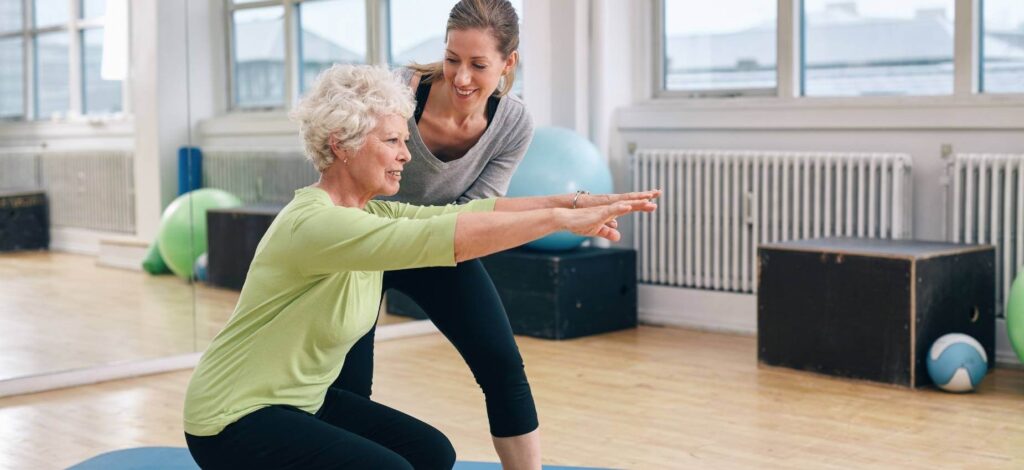
Here are the 3 qualities that all good personal trainers should have:
1) Knowledgeable:
Training shouldn’t be overly complicated, but there are some overarching principles and concepts that every good personal trainer must understand. Make sure that your trainer has a clear understanding of the human body; how it functions, how it moves, how it recovers, and what breaks it.
Knowing this allows your trainer to create safe and effective workout programs tailored to your individual needs. This is another reason why understanding your needs is important.
Principles that apply to strength training may not apply to training cardio. Having a specialist ensures that you’re getting the best advice and guidance for your specific situation. Keep in mind that even as a specialist, your trainer should have some foundational familiarity with the different training techniques and modalities, such as strength training, cardio exercises, flexibility training, and more.
Additionally, a good trainer should stay up to date with the latest research and trends in the wider fitness industry. This allows them to make recommendations based on real evidence.
A trainer also needs to have a good grasp of nutrition principles. They’ll need to guide you on the basics of a proper diet because your diet is a HUGE contributor to your overall health and fitness.
2) Experienced:
A trainer must be able to effectively support their clients. Having a ton of theoretical knowledge is great, but some things can’t be learned except through real-world experience.
Your trainer should have experience in designing and implementing workout programs for clients of different fitness levels, goals, and limitations.
Using this experience, your trainer can adapt and modify exercises to suit your individual needs and ensure safety during training sessions.
A trainer with a wide range of experience has likely worked with clients facing various challenges or with various goals such as weight loss, muscle building, injury rehabilitation, or specific sports-related goals. They’ve seen a lot, so they know how to address many different situations.
Very experienced personal trainers will also tend to have a lot more client success stories that you can look at to assess whether they’re right for you.
3) Passionate:
Your trainer should have a passion for helping clients achieve their goals. They should also have excellent communication skills and a friendly, professional attitude. The best personal trainers will be obsessed with their work! They just love everything health and fitness.
You’ll know when you meet this type of trainer. Their passion and energy will inspire you and be able to motivate you. You want someone who will go above and beyond to make sure that you’re having a great experience and are moving toward your goals.
A good personal trainer finds joy in witnessing their clients progress. They will praise your gradual achievements and bring enthusiasm to every workout.
The passion they have for health and fitness is also what drives them to continuously seek out opportunities to learn and expand their experience base.
Now that you’re familiar with the qualities of a good personal trainer, the next point to cover is:
How to Find a Good Personal Trainer

Finding and choosing the right personal trainer involves careful consideration. You’re entrusting this person with your health and safety – not to mention your hard-earned cash. It’s worth it to take some time to make sure that you’re choosing a suitable candidate.
The easiest place to start is to ask your family and friends who’ve had personal trainers. Ask them who they would recommend and what their experiences were like.
Have no family or friends that train? Here’s your solution:
Try your nearby gyms. You can ask a few of the regular patrons of the gym who they’ve trained with and who they’d recommend. They’ll most likely be able to give you a brief review and some contact information.
Once you’ve got some basic contact info, then you can continue your research online. Search their social media profiles/ website, read reviews, possibly contact any of their previous clients for feedback and consume some of the potential trainer’s content (if they have any).
Once satisfied with your online research, the next step is to book a consultation.
What To Ask A Personal Trainer During A Consultation?
During the consultation with your potential personal trainer, you want to make sure to assess their communication style, approach to training, and personality.
Make sure to ask questions such as:
- What are your qualifications?
- How long have you been a personal trainer?
- What are some of your personal successes?
- Who are some successful clients of yours that I can reach out to?
- What is your specialty?
- How can you help me specifically?
Ask whatever you need to assess your potential personal trainer’s compatibility with your goals and personality.
Make sure to find out about their experience, training methods, and how they can specifically help you achieve your desired outcomes. Don’t hesitate to request client testimonials or before-and-after success stories to gauge their track record. Make sure to consider their availability and scheduling flexibility to be sure it aligns with yours.
Finally, trust your instincts and choose a personal trainer who you can get along with on a personal level. It doesn’t benefit you to choose someone with the best track record and pedigree if you can’t even stand them as a person.
Remember, finding the right personal trainer is a vital step toward reaching your fitness goals, so take the time to make an informed decision that will set you up for success.
What Are Some Signs of a Bad Personal Trainer?
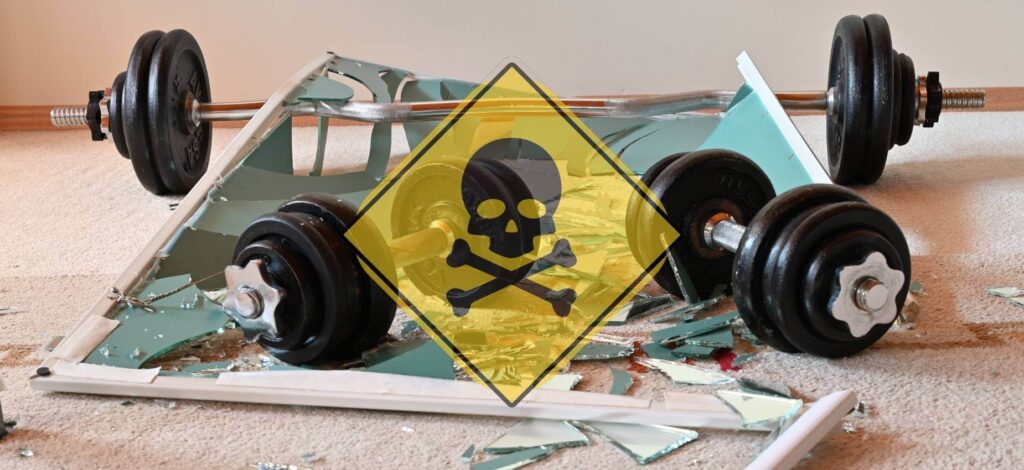
Red Flags to Watch Out For:
When evaluating personal trainers, keep an eye out for certain warning signs. These may include poor professionalism, lack of qualifications, or trainers who push unsafe or ineffective training methods. Trust your instincts and avoid trainers who don’t meet your standards or make you feel uncomfortable.
Here Are 3 Signs Of A Bad Personal Trainer:
1) Trainers who use cookie-cutter routines for all of their clients: This sort of defeats the “personal” in “personal trainer”. Your trainer should make a plan that’s customized just for you – based on your goals and needs.
Beware of trainers who try to impress with unnecessarily complex movements that don’t align with your objectives. While challenging workouts can be beneficial, it’s important to ensure they are effectively helping you progress toward your goals rather than simply leaving you exhausted without meaningful improvement.
2) A lack of knowledge and education: Some trainers may possess only basic certifications and fail to pursue further education or research to enhance their expertise.
If they say things like “squatting too low is bad for your knees” or “use machines instead of free weights because they’re safer,” you should question their understanding of how these exercises work.
A competent personal trainer should stay up-to-date with the latest research and provide accurate guidance based on evidence.
3) A lack of commitment to your progress: A reliable trainer should invest time and effort into understanding your goals, providing tailored workouts, and offering genuine support and encouragement.
They should be results-focused and prioritize your needs. As your training progresses, your trainer should pay attention to your progress and adjust your workouts accordingly.
If you start to notice that your trainer cares more about getting paid than seeing you achieve your goals, then it’s time to start looking elsewhere.
Remember, your journey to fitness requires dedication and the right guidance. Be aware and ensure your personal trainer demonstrates expertise, professionalism, and a genuine commitment to helping you achieve your goals.
What Certifications Should a Personal Trainer Have?
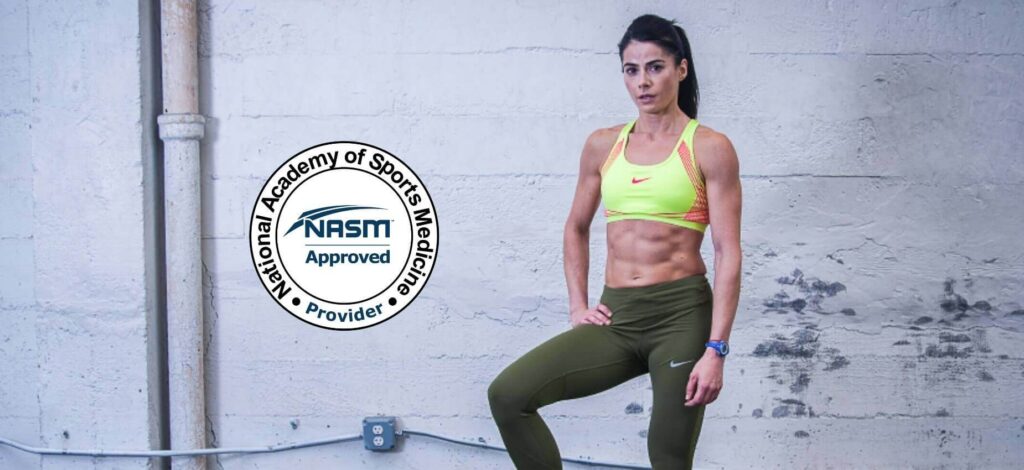
Certifications for Personal Trainers:
Reputable personal trainers hold certifications from recognized organizations. Look for certifications from:
- NASM – The National Academy of Sports Medicine is an organization in the fitness industry, founded in 1987. NASM is committed to setting high standards for fitness professionals through comprehensive education and certification programs. They focus on evidence-based training methods, emphasizing corrective exercise, injury prevention, and functional training.
- ACE – The American Council on Exercise offers comprehensive education and certifications in the fitness industry. With a focus on evidence-based practices, ACE equips fitness professionals with the knowledge and skills to design personalized and effective exercise programs. Their certifications cover various specialties, including personal training, group fitness instruction, and health coaching.
- ACSM – The American College of Sports Medicine is an organization in the field of sports medicine and exercise science. Founded in 1954, ACSM is dedicated to advancing the understanding and application of exercise science for the benefit of individuals of all ages and fitness levels. ACSM offers certifications and education programs for fitness professionals, researchers, and healthcare providers.
How Much Does a Personal Trainer Cost?

Understanding Personal Trainer Costs
In California, the average hourly rate for a personal trainer ranges between $50 to $100. However, in a city like San Francisco, where the cost of living is higher, the rates may be slightly elevated.
On average, personal trainers in San Francisco may charge between $70 to $150 per hour. It’s important to note that these rates are approximate and can vary depending on the trainer’s qualifications, experience, and the specific services offered.
Some trainers may also offer package deals or discounted rates for multiple sessions. Ultimately, the cost of a personal trainer is an investment in your health and fitness, and it’s important to find a trainer who aligns with your goals and budget.
What to Expect from a Personal Trainer

Guidance and Accountability:
A good personal trainer provides more than just exercise routines. They offer personalized guidance, motivation, and support throughout your fitness journey. You can expect them to design customized workout plans, help you track your progress, and hold you accountable for your goals.
A good trainer should be open to answering any fitness-related questions that you may have and have the patience to teach you what you’re seeking to learn. When you’re with a good personal trainer, you should feel excited because they bring a level of energy and excitement to the sessions that energize you.
A good trainer doesn’t let you cheat yourself. They are your number one accountability partner. Without accountability, it gets tougher to reach your goals. It’s not like they need to be a military drill sergeant, but sometimes a little tough love is what you need to get into gear.
You should expect constructive criticism because you’re going to make many mistakes in your training journey. Your trainer should correct you in a non-judgmental way so that you stay safe and reach your desired goals.
How Long Should You Hire a Personal Trainer?
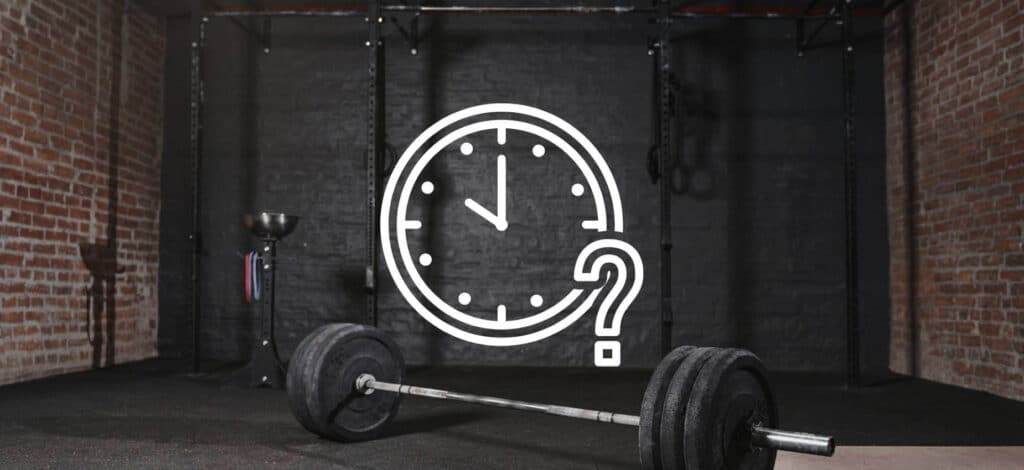
The duration of working with a personal trainer depends on your goals and preferences. Some individuals hire trainers for short-term goals, while others prefer long-term partnerships. Consider your objectives and discuss them with your trainer to determine the most suitable time frame for you.
Your health and fitness are life-long projects. The more consistent you are in maintaining your health, the better your health will be. That being said, sometimes you may just need a trainer to fill in the gaps. Maybe you already have a good fitness routine for maintaining your basic health, but you want to prepare for a marathon or triathlon. Maybe you want to cut weight so that you can fit into your favorite dress for an upcoming event.
You might have just had a baby, or you could be needing to recover from an injury. Whatever your personal situation is, you can have a conversation with your trainer about it. They’ll be able to give you advice on a timeline and make recommendations according to your needs.
Advantages and Disadvantages of Having a Personal Trainer

Having a personal trainer comes with numerous benefits. They provide expertise, motivation, and personalized attention. Trainers can help you push past plateaus, ensure proper form, and provide valuable insights into nutrition and overall wellness.
Here Are 4 Major Advantages of Having a Personal Trainer:
- 1) Personalized Training – Personal trainers tailor to your specific goals, needs, and abilities. They design customized workout programs that maximize efficiency and effectiveness, helping you make the most of your time and effort.
- 2) Accountability and Motivation – Your personal trainer serves as a supportive partner throughout your fitness endeavors. They keep you on track, push you to surpass your limits, and celebrate your achievements, ensuring consistency and progress.
- 3) Expert Guidance – Personal trainers possess a wealth of knowledge and expertise in exercise techniques, proper form, and injury prevention. They can teach you the correct techniques, correct any imbalances, and minimize the risk of injuries.
- 4) Lifestyle Transformation – Personal trainers provide valuable education and empower you with the tools to make sustainable lifestyle changes. They offer nutritional guidance, stress management techniques, and overall wellness advice to optimize your health.
With a good personal trainer by your side, you gain a dedicated professional who is invested in your success, making your fitness journey more enjoyable, effective, and rewarding.
Are There Any Disadvantages of Having a Personal Trainer?

While personal trainers offer immense value, there are a few potential downsides to consider. These include the cost, scheduling conflicts, and the need to find a trainer who aligns with your personality and fitness preferences. Even though the benefits of having a qualified trainer often outweigh these drawbacks, it’s important to be aware of them.
Here Are 4 Major Disadvantages of Having a Personal Trainer:
- 1) The Cost – One potential disadvantage is the cost associated with hiring a personal trainer. Personal training sessions can be expensive, especially if you require frequent or long-term assistance. Remember that personal trainers have to dedicate a ton of time and energy to providing you with a tailored experience – that doesn’t come cheap.
- 2) Scheduling – This can be a challenge, especially if your personal trainer has a busy schedule or if you have limited availability. When working with a top-tier trainer, you must understand that they’re in high demand. You may only have a limited window between your work, family life, social life, etc. These factors can make it difficult to plan your sessions.
- 3) Dependency – Becoming dependent on a personal trainer can present some issues. Relying solely on a trainer for motivation and guidance may hinder the development of self-motivation and independence in your fitness journey. That’s why it’s important to find a trainer that instills the right mindset in you so that you can experience a lasting transformation.
- 4) Discomfort & Vulnerability – Some people may feel uncomfortable or self-conscious working closely with a trainer, especially if they are new to fitness or have concerns about their body image. To be trained effectively, you must be willing to be vulnerable and open up to your trainer about what you’re struggling with that may be holding you back. This level of vulnerability may be scary for some.
It’s important to weigh these potential drawbacks against the benefits and determine if hiring a personal trainer is the right choice for your individual circumstances and preferences. This is a decision that can drastically transform your life, so do your due diligence.
What’s The Bottom Line?
Finding the right personal trainer in San Francisco is a journey worth taking. By understanding your needs, seeking out qualified trainers, and considering cost and expectations, you can make an informed decision that leads you closer to your fitness goals.
At the end of the day, hiring a personal trainer is a choice only you can make for yourself. If you decide to partner up with a fitness coach, make sure to communicate your needs and expectations about fitness. The right personal trainer will enthusiastically want to help you reach and surpass your goals.
Get Started on Your Fitness Journey With a Personal Trainer in San Francisco
Remember, a personal trainer can be your invaluable partner, supporting and guiding you every step of the way. If you’re ready to take the next step in reaching your fitness goals, then a great place to start is AP Wellness Training & Consulting.
I’m Aleks Pavlovic, and my journey led me from cardiovascular research at Stanford to founding AP Wellness Training & Consulting. I witnessed how heart patients struggled to implement healthy habits despite good intentions, which drove my passion to provide personalized fitness and nutrition guidance. Schedule a free consultation today and take the first step towards a healthier, fitter you.


